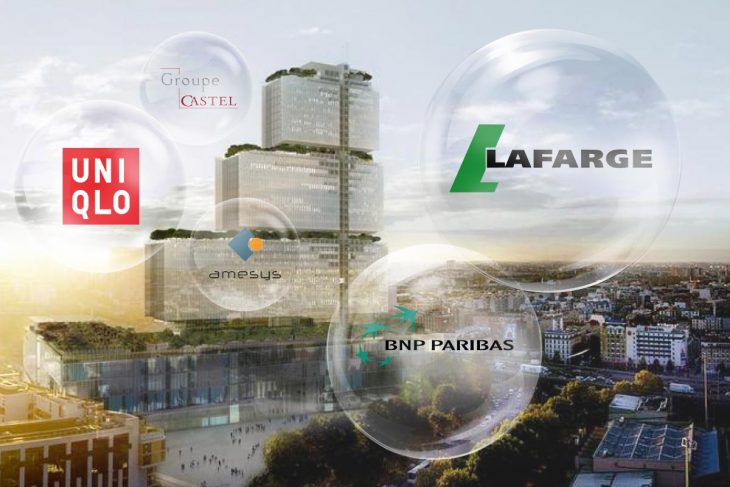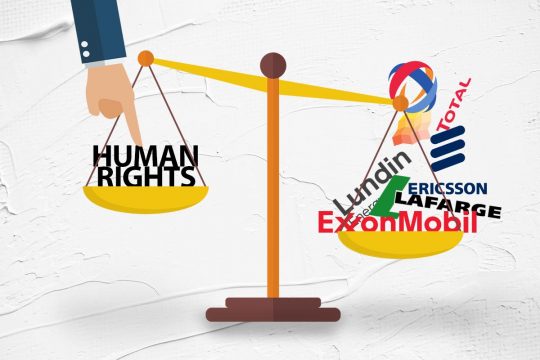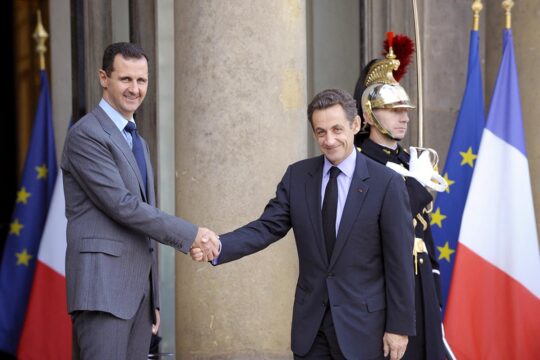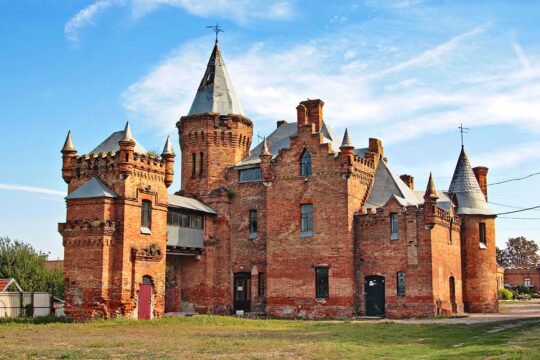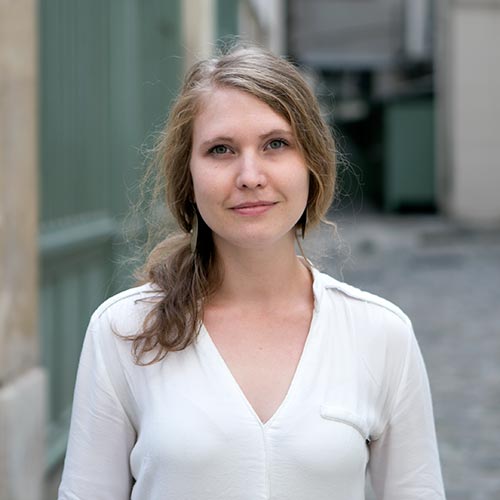Can a company be an accomplice in international crimes? While we are still far from a judgment, the Lafarge case has seen many upheavals, with civil parties and defence lawyers fighting each other through appeals to the Supreme Court. And it is the very legitimacy of the charges that is being questioned. The group's indictment for complicity in crimes against humanity -- established, cancelled and then reinstated -- has not ceased to be called into question. And through the judicial journey of the French cement company, which has meanwhile merged with Swiss holding company Holcim, the conditions for future French prosecutions against business actors are being outlined. For this is the first time that a company has been indicted, as a legal entity, on such grounds.
It all began on November 15, 2016, when the French NGO Sherpa, the European Center for Constitutional and Human Rights (ECCHR) and 11 former Lafarge employees filed a complaint in Paris against the Lafarge group for "financing terrorism", "complicity in crimes against humanity", "complicity in war crimes", "endangering others" and other related offenses. The complaint targets events that took place in 2013 and 2014 in Syria, around the Jalabiya factory owned by the French group.
"Sherpa began looking into Lafarge's activities in Syria in the summer of 2016, after the publication of two journalistic investigations -- on the Syrian news website Zaman Al Wasl in February, and then in Le Monde," says Anna Kiefer, litigation and advocacy officer at the NGO. Several material elements such as management E-mails and testimonies indicated that the company had paid large sums of money to several armed groups, including Daesh, to continue operating its factory in northern Syria between 2013 and 2014. "Together with ECCHR, we contacted former Lafarge employees and gathered further evidence before filing a complaint in November," Kiefer continues.
Acquired by Lafarge in 2007 and commissioned in 2010, the Jalabiya plant was the largest foreign investment in Syria at the time (estimated at more than 600 million euros) outside the oil sector. With a production capacity of 2.6 million tons of cement per year, it is managed by Lafarge Cement Syria, a subsidiary in which the French group has a 98% stake. In 2011, the Syrian revolution broke out, and as it was repressed the country sank into civil war. In the summer of 2012, when other French companies in Syria had already packed up, Lafarge evacuated its expatriates but did not stop its activities. 250 Syrian employees kept the plant running, while the area was littered with roadblocks and frontlines between the armed groups fighting in the region. Among them was Daesh. Lafarge undertook to negotiate access to the plant for its trucks and employees, as well as its supply of raw materials. Between 2013 and 2014, some 13 million euros were paid to intermediaries of armed groups, including Daesh.
Economy Ministry complaint
At the end of July 2014, the situation deteriorated, and the cement plant suspended operations before restarting them in early September 2014. An agreement was then reportedly reached with Daesh, which now controlled the majority of the region. But on September 18, news of an imminent attack on the plant reached the employees. A few days later, a Lafarge spokesperson told the press that the group had shut down the site for security reasons and evacuated staff from its Syrian plant. In fact, on 18 September, around 30 employees were forced to flee by their own means as Daesh took over the cement plant. Four employees were captured and held hostage for ten days before being released.
Two years later, the French cement company was at the heart of a first investigation. In September 2016, the Ministry of Economy and Finance filed a first complaint against Lafarge, two months before the NGOs and former employees of the cement company. A preliminary investigation was opened in October at the Paris public prosecutor's office. "Bercy's complaint was essentially about a potential breach of the customs code," notes Kiefer, and more specifically on violation of a European embargo on Syrian oil, enacted by the European Union in 2012 as part of a series of sanctions against the Syrian regime. "Without our complaint filed in November 2016, would the Lafarge case have been limited to that?" wonders the Sherpa lawyer.
In March 2017, the group admitted in a statement that its subsidiary had "handed over funds to third parties in order to make arrangements with a number of armed groups, including third parties targeted by sanctions". These measures were "unacceptable" and the company was conducting an "independent internal investigation", it said.
A wider judicial investigation, merging the Ministry’s complaint and that of the NGOs and former employees, was finally opened in June 2017 and entrusted to three investigating judges, two of whom specialize in crimes against humanity. On December 1, 2017, three former executives of the cement company were indicted for "financing terrorism", "endangering others" and "violating the European regulation" concerning the embargo on Syrian oil. They are Bruno Pescheux, director of Lafarge's Syrian subsidiary between 2008 and 2014; his successor Frédéric Jolibois; and Jean-Claude Veillard, Lafarge's security director at the Paris headquarters. Others followed. In all, eight former executives and managers of the group are now being prosecuted by the French courts in this case.
Explosive indictment in 2018
But it was the indictment of the company itself on June 28, 2018, that had the strongest impact. In addition to the embargo violation, financing a terrorist enterprise and endangering others, Lafarge was also accused of complicity in crimes against humanity. "This is the first time in the world that a company has been indicted for complicity in crimes against humanity, marking a decisive step in the fight against impunity for multinationals operating in armed conflict zones," say Sherpa and ECCHR. The NGOs point out that this is also the first time a parent company has been indicted in France for the activities of one of its subsidiaries abroad.
The stakes are high. "We know that companies are key actors in conflicts. However, until now, they have been very little worried about their involvement," says Kiefer. "They benefit from a historical impunity. Putting responsibility on them as entities in themselves puts an end to the argument that the abuses committed were the work of a few black sheep."
“The Lafarge case calls into question the very structure of multinationals," adds her colleague from ECCHR Cannelle Lavite. “By indicting the Parisian parent company, the French justice system is sending a strong signal that multinationals can no longer hide behind their subsidiaries and their complex structures. And it defines a red line on what business can do in the name of financial interests."
Intention not established, says appeal court
But in November 2019, the Paris Court of Appeals overturned the company's indictment for "complicity in crimes against humanity", while upholding the indictments for financing terrorism, violating an embargo and endangering the lives of others. “According to the penal code and French jurisprudence, the accomplice must have carried out the acts with knowledge that crimes were being committed and with awareness that their acts could contribute to these crimes," explains Lavite. “But the court of appeal also considered that it was necessary to prove Lafarge's intention to associate itself with these crimes against humanity. This is an extremely restrictive interpretation of complicity."
The civil parties filed an appeal at the Supreme Court. A month earlier, the Court of Appeal had also annulled the admissibility of the NGOs as civil parties, notably for the offence of complicity in crimes against humanity. According to the code of criminal procedure, an association can only be a civil party if, among other things, it has a mandate in its statutes to combat crimes against humanity or war crimes. "As these crimes are not formally named in our statutes, the investigating chamber declared us inadmissible," explains Lavite. Again, she says, "this was an extremely restrictive interpretation of our statutes and a dangerous precedent". Most of the cases against multinationals for international crimes (see box below) have been initiated by civil society organizations, Kiefer points out.
It is true that in matters of universal jurisdiction, prosecution falls solely to the public prosecutor. "But being a civil party allows us to follow the case, to bring it forward by making appeals. The Lafarge case is proof of the important contribution of civil society in the judicial struggle against the impunity of multinationals." The burden of these cases would otherwise rest solely on the prosecution, she says. And therefore it would depend on its will as much as on its means.
In September 2021, the Supreme Court partially annulled the decision of the Appeal Court, judging ECCHR admissible as a civil party - in the name of promoting international humanitarian law cited in its statutes - but not Sherpa. Yet ECCHR was not the only organization to bring the case. The International Federation for Human Rights (FIDH), the Human Rights League and the Syrian Center for Media and Freedom of Expression (SCM) have since filed civil suits, as well as some 50 other Lafarge employees in Syria.
In a major blow to Lafarge, the Supreme Court also ruled that complicity does not require the intention to participate in, or approve of the crimes committed, only knowledge and awareness that money was paid to armed groups committing such crimes. In May 2022, the Court of Appeal therefore finally confirmed the indictment of Lafarge SA for complicity in crimes against humanity. The cement company's lawyers have announced that they will appeal against this decision, but without giving details. Neither the group, which has become Franco-Swiss, nor its lawyers have responded to our requests for an interview.
Political implications ?
And while proceedings against the company and its former executives and managers are continuing before the anti-terrorist unit also responsible for prosecuting crimes against humanity, other responsibilities are also being questioned. Arié Alimi, lawyer for the Human Rights League, has asked that light be shed "on the responsibilities and the degree of knowledge of this complicity in crimes against humanity on the part of public actors". During the hearings of Lafarge officials, the Deputy Director General at the time reportedly said: "We went to see the French ambassador for Syria every six months, and no one told us 'Now you have to leave'. The French government strongly encouraged us to stay, it's still the biggest French investment in Syria and it flies the French flag." But were the French authorities aware of exactly what means the company was using to keep its operations in Syria going? Diplomats from the French Foreign Ministry have been heard by the investigators, but only as witnesses for the time being.
CASTEL, BNP AND OTHERS: COMPANIES UNDER INVESTIGATION IN FRANCE
Lafarge is not the only company in the sights of French justice. At the end of June, the crimes against humanity unit of the French National Anti-Terrorism Prosecutor's Office (PNAT) opened a preliminary investigation into a subsidiary of the French beverage group Castel for complicity in crimes against humanity and war crimes in the Central African Republic.
In July 2021, the public prosecutor's office opened an investigation into four textile giants (Uniqlo France, Fast Retailing, Inditex, SMCP and Skechers) accused of profiting from forced labour of Uighurs in China.
Already under investigation for its alleged role in the Tutsi genocide in Rwanda, French bank BNP Paribas has since the summer of 2020 been the subject of a judicial investigation for complicity in crimes against humanity in Sudan.
The investigation into French firm Amesys - now called Nexa Technologies -, accused of supplying cyber-surveillance equipment to Libya at the time of Muammar Gadhafi, has been closed but a defence appeal is pending. Nexa is also suspected of supplying similar equipment to the Egyptian regime of Abdel Fattah al-Sissi. This second investigation is under way. The company and four of its directors were put under investigation in June 2021 for “complicity in acts of torture” in the Libyan case and in October the same year for “complicity in torture and enforced disappearances” in the Egyptian case. A few months earlier, a similar case launched against the Qosmos company was dismissed.


